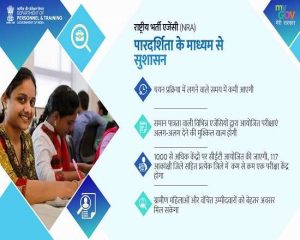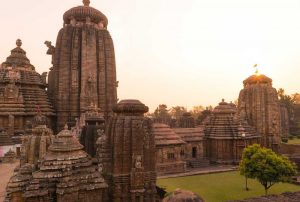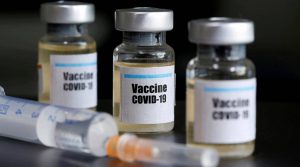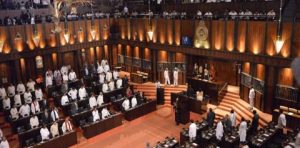Daily Current Affairs for Government Exams:
Today Current Affairs: 20th August 2020 for UPSC IAS exams, State PSC exams, SSC CGL, State SSC, RRB, Railways, Banking Exam & IBPS, etc
Table of Contents
Contents:
- National Recruitment Agency (NRA),:
- Lingaraj Temple:
- Curative Petition:
- Vaccine nationalism:
- 19th amendment:
- Other important current affairs:
1.National Recruitment Agency (NRA),:

The Union Cabinet has given its approval for the creation of the National Recruitment Agency (NRA), paving the way for reform in the recruitment process for central government jobs.
- A multi-agency body called the National Recruitment Agency (NRA) will conduct a Common Eligibility Test (CET) to screen/shortlist candidates for the Group B and C (non-technical) posts.
- NRA will have representatives of the Ministry of Railways, Ministry of Finance/Department of Financial Services, the SSC, RRB & IBPS.
- NRA shall conduct a separate CET each for the three levels of graduate, higher secondary (12th pass) and the matriculate (10th pass) candidates for those non-technical posts to which recruitment is presently carried out by the Staff Selection Commission (SSC), the Railway Recruitment Boards (RRBs) and by the Institute of Banking Personnel Selection (IBPS).
- The Government has sanctioned a sum of Rs. 1517.57 crore for the National Recruitment Agency (NRA). The expenditure will be undertaken over a period of three years.
- It will be headed by a Chairman of the rank of the Secretary to the Government of India. It will have representatives of the Ministry of Railways, Ministry of Finance/Department of Financial Services, the SSC, RRB & IBPS.
- It will conduct a common preliminary examination for various recruitments in the central government.
- Based on the common eligibility test (CET) score a candidate can apply for a vacancy with the respective agency.
- The test will be conducted for three levels: graduate, higher secondary (12th pass) and the matriculate (10th pass) candidates.
- However, the present recruitment agencies– IBPS, RRB, and SCC — will remain in place.
- Based on the screening done at the CET score level, final selection for recruitment shall be made through separate specialized Tiers (II, III, etc.) of examination which shall be conducted by the respective recruitment agencies.
2. Lingaraj Temple:

The Odisha government has announced to give a facelift to the 11th century Lingaraj Temple, akin to its pre-350-year structural status.
- The efforts will be to create a spiritual and ecological ambiance in and around the Lingaraj Temple.
About - Lingaraja Temple is a temple dedicated to Shiva and is one of the oldest and largest temples in Odisha.
- Built by king Jajati Keshari of Soma Vansh.
- It is built in red stone and is a classic example of Kalinga style of architecture.
- Located to the north of the temple is Bindusagar Lake.
- The temple is believed to be built by the kings from the Somavamsi dynasty, with later additions from the Ganga rulers.
- The temple has images of Vishnu, possibly because of the rising prominence of the Jagannath sect emanating from the Ganga rulers who built the Jagannath Temple in Puri in the 12th century.
- Deula style: The temple is Lingaraj Temple built in the Deula style that has four components namely, vimana (structure containing the sanctum), Jaganmohan (assembly hall), Nata Mandira (festival hall) and bhoga-mandapa (hall of offerings), each increasing in the height to its predecessor.
3.Curative Petition:

Recently, the Supreme Court held Prashant Bhushan guilty of criminal contempt of court for his tweets against the CJI S.A. Bobde and against the judiciary.
- Now, Prashant Bhushan has asked the Court to defer the punishment until the review petition is filed and decided.
- He also submitted that the remedy of the curative petition is also available.
Curative Petition:
- The concept was first evolved by the Supreme Court of India in Rupa Ashok Hurra vs. Ashok Hurra and another case (2002) on the question whether an aggrieved person is entitled to any relief against the final judgment/order of the Supreme Court, even after the dismissal of a review petition.
- The court used the Latin maxim “actus curiae neminem gravabit”,which means that an act of the court shall prejudice no one. It’s objectives are twofolds- avoid miscarriage of justice and to prevent abuse of process.
- The concept of the curative petition is supported by Article 137 of the Indian Constitution.
- It provides that in the matter of laws and rules made under Article 145, the Supreme Court has the power to review any judgment pronounced (or order made) by it.
- A curative petition may be filed after a review plea against the final conviction is dismissed.
- It can be entertained if the petitioner establishes that there was a violation of the principles of natural justice, and that he was not heard by the court before passing an order.
- It must be rare rather than regular.
- A curative petition must be first circulated to a Bench of the three senior-most judges, and the judges who passed the concerned judgment, if available.
- Only when a majority of the judges conclude that the matter needs hearing should it be listed before the same Bench.
- The Bench at any stage of consideration of the curative petition can ask a senior counsel to assist it as amicus curiae (Friend of the court).
- A curative petition is usually decided by judges in the chamber unless a specific request for an open-court hearing is allowed.
4.Vaccine nationalism:

Even before the end of final stage human trials or regulatory approval, several wealthier countries like Britain, France, Germany, and the US have entered into pre-purchase agreements with Covid-19 vaccine manufacturers, a development that has come to be known as “vaccine nationalism”.
- There are fears that such advance agreements will make the initial few vaccines unaffordable and inaccessible to everyone apart from the rich countries in a world of roughly 8 billion people.
Vaccine Nationalism
- Vaccine nationalism occurs when a country manages to secure doses of vaccine for its own citizens or residents before they are made available in other countries.
- This is done through pre-purchase agreements between a government and a vaccine manufacturer.
- Vaccine nationalism is not new. During the early stages of the 2009 H1N1 flu pandemic, some of the wealthiest countries entered into pre-purchase agreements with several pharmaceutical companies working on H1N1 vaccines.
- At that time, it was estimated that, in the best-case scenario, the maximum number of vaccine doses that could be produced globally was two billion.
- The US alone negotiated and obtained the right to buy 600,000 doses. All the countries that negotiated pre-purchase orders were developed economies.
- Vaccine nationalism is harmful to equitable access to vaccines.
- It further disadvantages countries with fewer resources and bargaining power.
- It deprives populations in the Global South from timely access to vital public health goods.
- Taken to its extreme, it allocates vaccines to moderately at-risk populations in wealthy countries over populations at higher risk in developing economies.
To bring about equitable and broad access, WHO, the Coalition for Epidemic Preparedness Innovations, and Gavi have come up with an initiative known as “Covax Facility”. The facility aims to procure at least two billion doses of Covid-19 vaccines by the end of next year for deployment and distribution mainly in the low- and middle-income countries.
5.19th amendment:

Sri Lankan government has granted approval to abolish the 19th amendment to the constitution and replace it with the 20th amendment.
- President Gotabaya Rajapaksa and Prime Minister Mahinda Rajapaksa had made the abolition of the 19th amendment as the main election plank during the presidential and parliamentary elections.
- The amendment brought by the previous government had put a two-term limit on the Presidency and curtailed the executive powers of the President and transferred it to parliament and independent commissions.
- The Rajapaksa family had alleged that the amendment was brought specifically to target the family.
- Mahinda Rajapaksa could not contest the last November Presidential elections because of the term limit and his younger brother Gotabaya became the candidate.
- The Rajapaksas secured a two-third majority in parliament during general elections held this month, thus paving way for constitutional amendments.
Other important current affairs:
1. Recently, France has deployed its military in the eastern Mediterranean Sea amid tensions between Greece and Turkey over recently-discovered gas reserves.
- According to France, the military has been deployed to strengthen the autonomous assessment of the situation and to affirm France’s commitment to free movement, to the security of maritime navigation in the Mediterranean and respect for international law.
- The Stand-off:
- Reason: The European Union (EU) and its allies in West Asia and North Africa made plans to build a gas pipeline from the Mediterranean to Europe’s mainland to transport the gas. However, they have kept Turkey out of it, which has infuriated Turkey.
- The gas transport would help reduce the EU’s dependency on Russia.
- Earlier in 2019, the EastMed Gas Forum was formed by Cyprus, Egypt, Greece, Israel, Italy, Jordan, and Palestine, and Turkey was again excluded.
- Turkey’s Counter: Turkey challenged the EU pipeline project and reached an agreement with Libya to form an Exclusive Economic Zone (EEZ) from its southern shores to Libya’s northern coast across the Mediterranean.
- However, Greece claimed the Turkish zone violated its maritime sovereignty and later announced its EEZ with Egypt, which clashed with Turkey’s zone.
Reacting to the deal, Turkey sent its survey ship near the island of Kastellorizo area mentioned in the
2. A study published in ‘Nature Communications’ has estimated the amount of microplastic pollution in the Atlantic Ocean and put it at 11.6-21.1 million tonnes.
- There has been uncertainty about the magnitude of plastic pollution in marine environments.
- Estimated Pollution:
- Measurements of the top 200 meters of the Atlantic found 11.6 – 21.1 million tonnes of microscopic particles.
- Scientists studied pollution of the Atlantic Ocean caused by three types of plastics – polyethylene, polypropylene, and polystyrene – which were suspended in the top 200 meters of the ocean.
- These three types of plastic are most commonly used for packaging.
- Based on plastic waste generation trends from 1950-2015 and considering that the Atlantic Ocean has received 0.3-0.8% of the global plastic waste for 65 years, the Atlantic waters could hold 17-47 million tonnes of plastic waste.
3. Recently, a report by the Technology Information Forecasting and Assessment Council (TIFAC) has highlighted the shortcomings of the Indian chemical industry which prove to be barriers in competing with China.
- TIFAC is an autonomous organization and think-tank of the Department of Science and Technology and it commissioned the report in March 2020 when the Covid-19 pandemic had started accelerating in India.
- India does not have enough technology, plants, and infrastructure to manufacture key chemicals in a cost-effective and less polluting manner.
- India has nearly stopped manufacturing several key Active Pharmaceutical Ingredients (API).
- India has given up the manufacturing of APIs for ascorbic acid, aspartame, and antibiotics like rifampicin, doxycycline, tazobactam acid, and even steroids.
- Production of intermediates such as atorvastatin, chloroquine, gabapentin, ciprofloxacin, cephalosporins, immunosuppressants has also been stopped.
- India depends on China for 67% of chemical intermediates and API that it needs to manufacture drugs and export.
- India also depends on the USA and Italy for API.
- The chemical industry is almost entirely dependent on China for chloroquine and hydroxychloroquine (HCQ).
- Hydroxychloroquine is an oral drug used in the treatment of autoimmune diseases like rheumatoid arthritis.
- In March 2020, the Indian Council of Medical Research (ICMR) suggested its use to contain the spread of Covid-19 for restricted populations.
- Manufacturers are unable to meet the price at which chemicals are produced by China.
- Solvent and chemical manufacturing costs in India are over 15% more than in China.
- The share of Indian bulk drugs and intermediates in the total pharmaceutical export mix reduced to 20% in 2018 from 42% in 2008.
4.Millennium Alliance:
- Millennium Alliance Round 6 & COVID19 Innovation Challenge-Award Ceremony was recently held. 49 innovations in 5 focus areas were recognized.
- It is an innovation-driven and impact-focused initiative leveraging collaborative resources to identify test and scale Indian innovations that address global development solutions.
- It is a consortium of partners (Public-Private Partnership) including the Department of Science and Technology, Govt. of India, United States Agency for International Development (USAID), Federation of Indian Chambers of Commerce and Industry (FICCI), UK Government’s Department for International Development (DFID), Facebook and Marico Innovation Foundation.
5. National Research Development Corporation (NRDC) and Council of Scientific and Industrial Research-National Aerospace Laboratories (CSIR-NAL) have joined hands to establish an Innovation-cum-Incubation Centre with external private funding to promote start-ups in the field of Aerospace technologies.
- Under this program, start-ups in the area of Aerospace engineering would be incubated, mentored, and supported for product and prototype development and their validation.
- National Aerospace Laboratories (NAL), is India’s first largest aerospace firm. It was established by the Council of Scientific and Industrial Research (CSIR) at Delhi in 1959 and its headquarters was later moved to Bangalore in 1960.
- National Research Development Corporation (NRDC) was established in 1953 by the Government of India to promote the technologies from various national R&D institutions and is presently working under the administrative control of the Dept. of Scientific & Industrial Research (DSIR), Ministry of Science & Technology.
6.Fifth World Conference of Speakers of Parliament (5WCSP).:
- Lok Sabha Speaker Om Birla today attended the inaugural ceremony of the Fifth World Conference of Speakers of Parliament (5WCSP).
- The two day Conference is being organized jointly by the Inter-Parliamentary Union (IPU), Geneva, and the Parliament of Austria with the support of the United Nations (UN).
- This is the first time that an international Parliamentary Conference of such a magnitude is being organized in Virtual mode.
- The theme of the Conference is Parliamentary leadership for more effective multilateralism that delivers peace and sustainable development for the people and planet.
7.NTPC Ltd, a central PSU under the Ministry of Power would be able to reduce the transportation cost of coal to fuel to its NTPC Kudgi Super thermal power station in Karnataka with a newly constructed bridge by South-Western railway.
- Kudgi Super Thermal Power Station (STPP) is a power station located at Kudgi village in Bijapur district, Karnataka.
- This is one of the coal-based thermal power plants of NTPC Limited.
- The water source is from a reservoir of Almatti Dam which is constructed on Krishna River.
8. The Union Cabinet has approved the proposal for leasing out three airports namely Jaipur, Guwahati, and Thiruvananthapuram airports of the Airports Authority of India (AAI) through Public-Private Partnership (PPP).
- These three AAI airports for Operation, Management, and Development have been leased to M/s Adani Enterprises Ltd for a period of fifty years.
- These projects will bring efficiency in service delivery, expertise, enterprise, and professionalism apart from harnessing the needed investments in the public sector.




